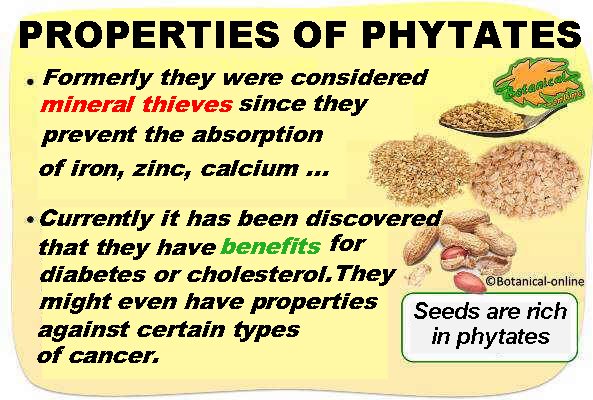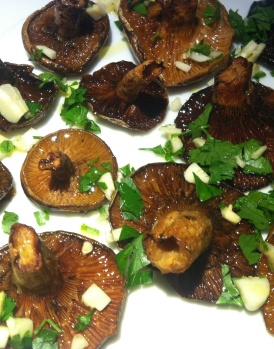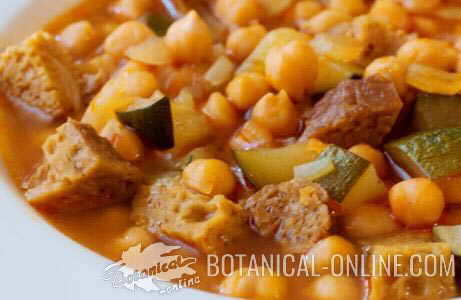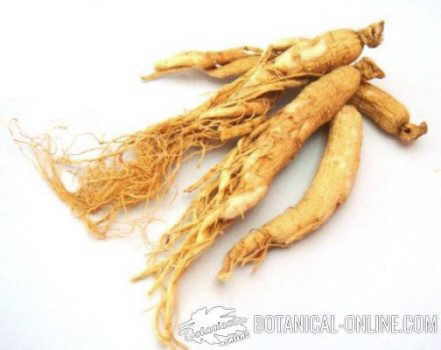Contents
- 1 Nutritional benefits of cereals
- 1.1 FOOD PROPERTIES OF CEREALS
- 1.2 Why are cereals very important in the diet?
- 1.3 A group of energy-rich foods for its richness in carbohydrates and polyunsaturated fats
- 1.4 Advantages of cereals versus meat
- 1.5 What kind of carbohydrates do cereals have?
- 1.6 Cereals are useful foods for obesity diet
- 1.7 Direct consumption of cereals as a way to more healthy and sustainable livelihoods
- 1.8 Products derived from cereals
Nutritional benefits of cereals
FOOD PROPERTIES OF CEREALS
Why are cereals very important in the diet?
The use of cereals in the diet has been the main source of nutrients since ancient times.
The characteristics of the plants that produce food grain make them more efficient plants capable of producing the highest amount of nutrients in less cultivated land.
Studies on cereals, reveal that there is no other food group that is capable of providing virtually all the nutrients the human body needs.
A group of energy-rich foods for its richness in carbohydrates and polyunsaturated fats
Cereals are very rich in carbohydrates that come from the high content of starch in their grains, where the energy reserve for future plant growth is.
In the human diet, carbohydrates, along with fats, provide energy. Unlike fats – which can have from animal or vegetable origin-, carbohydrates, if we except those provided from milk and eggs, come from vegetables. Plants obtain these components by means of the photosynthesis process.
The energy needs of each individual depend on the type of work done, but in general, doing moderate activity, an adult male needs between 2500 and 4000 and a woman between 2100 and 3000. Carbohydrates provide less calories than fat (4 calories per gram first and 9 calories per gram of seconds).
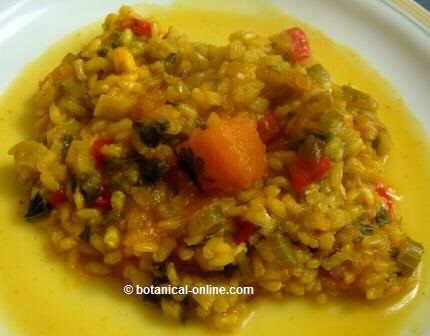 Whole rice with vegetables
Whole rice with vegetables
Advantages of cereals versus meat
Getting energy from intake of plant foods such as cereals, is better than getting it from food of animal origin. Among the advantages of cereals in regard to meat food, we have:
- Cereals do not contain cholesterol so it does not affect the incidence of many circulatory diseases.
- Cereals lack uric acid, responsible acid to attack the joints and to cause many pains to the patients of gout or the people with arthritis. The kidneys or the liver of the people who eat vegetable foods must work less to purify toxins contained in meat.
- Fats in cereals are polyunsaturated. They are present in the germ, being much more beneficial than many animal fats that, in many cases, are saturated.
- The level of toxins in cereals is always less than in meat. Cereals may contain undesirable plant protection products, but fattening animals, in addition to their own toxins that can eat plants themselves of which they feed, are forced to eat other products that could be harmful to human health, such as hormones, antibiotics, and numerous components for a faster and shiny flesh. All these external toxins, we must add those that generate their own harmful components in their metabolic processes.
What kind of carbohydrates do cereals have?
Carbohydrates in cereals are starches. Starch, once in the body, is disaggregated into glucose which is used for combustion cell.
The absorption of these carbohydrates are produced in the body in a gradual, little by little, so that this type of food can maintain levels of blood sugar balanced, without major changes produced when we eat other foods rich in other types of carbohydrates, such as foods sweetened with sugar.
Therefore, grains are suitable for diabetes patients, since they stabilize better the blood sugar levels.
MUESLI, RICH IN VITAMINS, MINERALS AND ENERGY
Energy wealth of corn is utilized to set the basis of muesli for breakfast. In the market there are many preparations like the one pictured on the left to make our morning muesli. What do prepared muesli bags contain? In most packages it can be seen that grain foods are abundant. The packages usually mention the following products derived from this food group, oat flakes, wheat flakes, barley flakes, corn flakes and puffed wheat. If possible, you should choose organic products as the source of the photo. How can you prepare a homemade muesli? Muesli must actually be a combination of cereals, mainly oats or wheat with fruit and yogurt or milk. Sometimes, to make it more rich and nutritious, you can add nuts and dried fruits. In preparing the left we can see that show, as well as cereals, raisins, apricots, hazelnuts and almonds. You can also add a couple tablespoons of the mentioned ingredients with milk or mixed them with yogurt for breakfast. A muesli does not only give us great energy to overcome the daily tasks but it will add to our diet a whole range of vitamins and minerals necessary for good health. |
Cereals are useful foods for obesity diet
Although its content in carbohydrates is very high , cereals are recommended in slimming diets or to control obesity. The nature of their hydrates, as explained above, allows them to provide a feeling of satiety for a long time. This prevents hunger between meals and the urgent need to snack between them.
Eating bread has been long regarded as an enemy of those who wanted to lose weight. This has led erroneously to a decrease in consumption of essential food group in human nutrition and their replacement by less desirable food.
Today, modern diets include cereals such as basic food group. These foods, properly combined with other plant foods such as vegetables, fruits, vegetables and fat, should provide enough calories for our body to perform its functions properly.
The great feeling of satiety that cereals provide makes as not crave other unsuitable foods and satisfies our hunger for less time.
Direct consumption of cereals as a way to more healthy and sustainable livelihoods
Despite the advantages of whole cereals , as stated above, in contemporary societies, especially in the rich ones, there is a clear downward trend of these types of foods to substitute them by refined sugar and meat.
This determines the fact that a large amount of cultivated cereals are destined for animal feed or for fuel production.
In most cases, grains are refined. This process removes the outer shell and inner germ, parts where he has many essential nutrients. By intending to supply only the starch, in fact only “empty calories” are provided. Many people have become used to eating white bread, so they consider it more tasty and refined.
With a growing population and an ever-increasing lack of resources on our planet, there will be an increasing need for direct consumption of grain, instead of using it as food for livestock.
Fortunately there are in the market many more shops everyday where you can find products from cereals, many of them whole. Among the most interesting from a nutritional point of view, we have the following:
Products derived from cereals
- Whole wheat flour: It is obtained by grinding the whole meal grain.
- Brown Bread: Is one that is made from whole wheat flour.
- Bran: Outer part of the grain which is removed through the refining process.
- Sprouts: Making cereals germinate provides shoots that can be eaten directly.
- Wheat germ: The seeds of wheat with all its regenerative properties.
- Whole grains: Those who have not been subjected to refining.
- Rolled oats, wheat or barley
- Semolina: Cereals obtained when grinding. They are characterized by heavy grains.
- Corn flour: Obtained from grinding grain. In the absence of gluten, is used to
- Breakfast cereals: These are foods prepared from cereals, blended with other food components such as honey or sugar.
![]() More information on cereals.
More information on cereals.

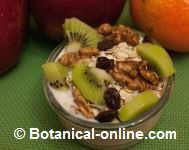 A
A 

